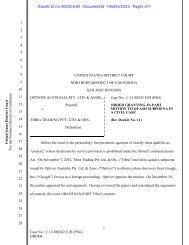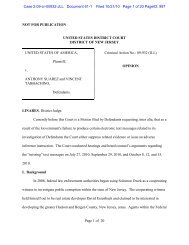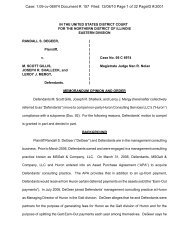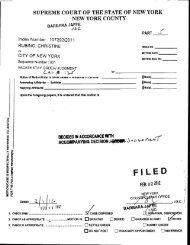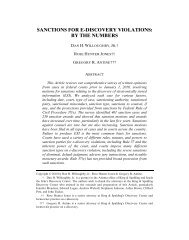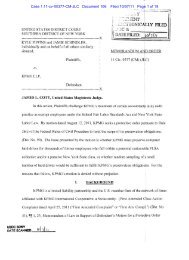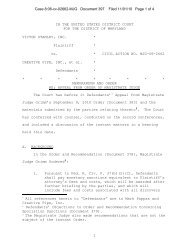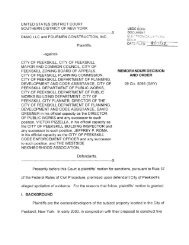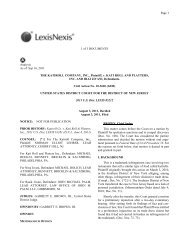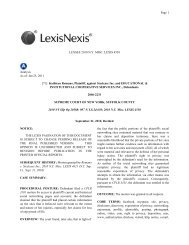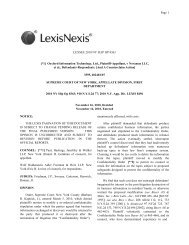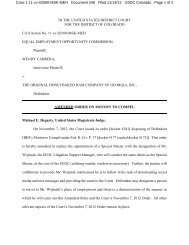Rimkus Consulting Group Inc. v. Cammarata - Ballard Spahr LLP
Rimkus Consulting Group Inc. v. Cammarata - Ballard Spahr LLP
Rimkus Consulting Group Inc. v. Cammarata - Ballard Spahr LLP
Create successful ePaper yourself
Turn your PDF publications into a flip-book with our unique Google optimized e-Paper software.
Case 4:07-cv-00405 Document 450 Filed in TXSD on 02/19/10 Page 17 of 139<br />
D. Relevance and Prejudice: The Burden of Proof<br />
It is well established that a party seeking the sanction of an adverse inference<br />
instruction based on spoliation of evidence must establish that: (1) the party with control over<br />
the evidence had an obligation to preserve it at the time it was destroyed; (2) the evidence<br />
was destroyed with a culpable state of mind; and (3) the destroyed evidence was “relevant”<br />
to the party’s claim or defense such that a reasonable trier of fact could find that it would<br />
support that claim or defense. See Zubulake v. UBS Warburg LLC (Zubulake IV), 220 F.R.D.<br />
212, 220 (S.D.N.Y. 2003). The “relevance” and “prejudice” factors of the adverse inference<br />
analysis are often broken down into three subparts: “(1) whether the evidence is relevant to<br />
the lawsuit; (2) whether the evidence would have supported the inference sought; and (3)<br />
whether the nondestroying party has suffered prejudice from the destruction of the evidence.”<br />
Consol. Aluminum Corp. v. Alcoa, <strong>Inc</strong>., 244 F.R.D. 335, 346 (M.D. La. 2006) (citing<br />
Concord Boat Corp. v. Brunswick Corp., No. LR-C-95-781, 1997 WL 33352759, at *7 (E.D.<br />
Ark. Aug. 29, 1997)). Courts recognize that “[t]he burden placed on the moving party to<br />
show that the lost evidence would have been favorable to it ought not be too onerous, lest the<br />
spoliator be permitted to profit from its destruction.” Chan v. Triple 8 Palace, <strong>Inc</strong>., No.<br />
03CIV6048(GEL)(JCF), 2005 WL 1925579, at *7 (S.D.N.Y. Aug. 11, 2005).<br />
Pension Committee recognized the difficulty and potential for unfairness in requiring<br />
an innocent party seeking discovery to show that information lost through spoliation is<br />
relevant and prejudicial. Those concerns are acute when the party seeking discovery cannot<br />
replace or obtain extrinsic evidence of the content of deleted information. But in many<br />
17



